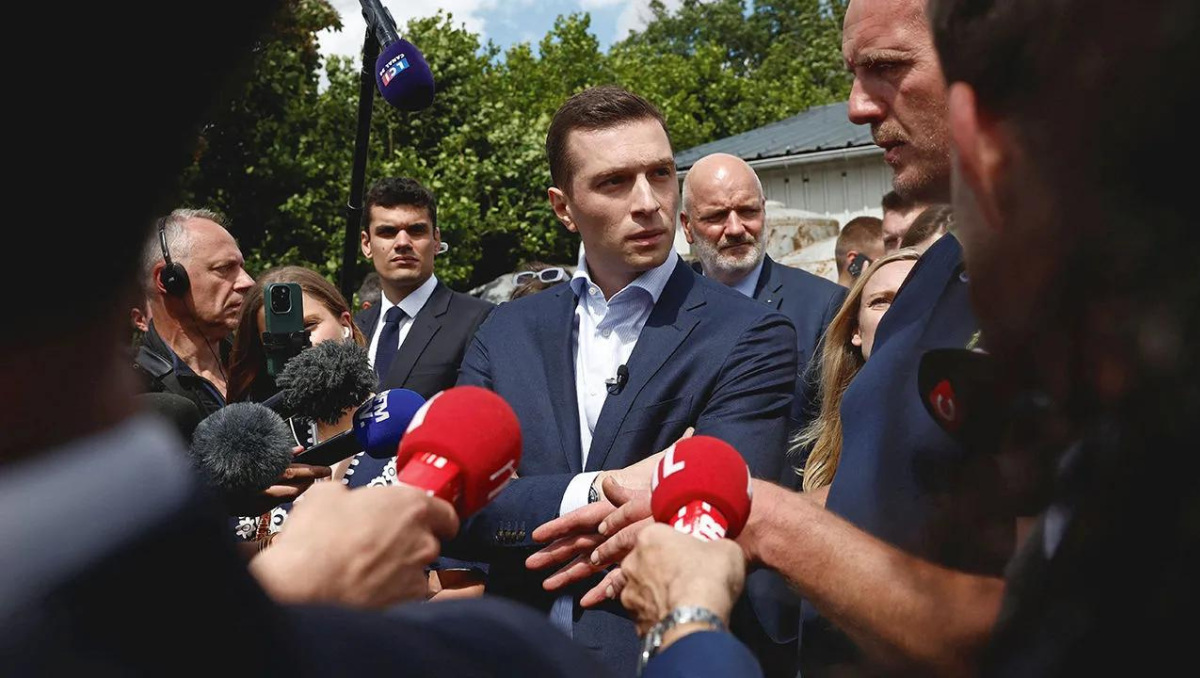The potential election of the far-right National Rally (RN) party in France’s upcoming parliamentary elections could significantly alter the country’s stance on the Russia-Ukraine conflict. Party chief Jordan Bardella has pledged ongoing support for Ukraine, but has also outlined clear limitations to that backing. Unlike incumbent President Emmanuel Macron’s more ambiguous approach, Bardella has drawn a firm “red line” against providing long-range missiles or any military equipment that could lead to escalation by directly hitting Russian cities.
Table of Contents
Problematic pro-Russian history
As the National Rally party stands poised to potentially form France’s next government, its stance on Russia has come under intense scrutiny. The party’s historical ties to Moscow, including former party leader and current presidential candidate Marine Le Pen’s past admiration for Vladimir Putin, have raised alarms about their ability to defend French interests against Russian aggression effectively. While current RN leader Bardella has attempted to reassure allies by acknowledging Russia as a threat, his recent statements indicate a willingness to continue supporting Ukraine, but with clear limitations.
This more restrained position could lead to conflicts with Macron over Ukraine policy, as the RN’s potential control of parliament would give them leverage to block or delay weapons transfers and limit financial aid in future budgets. The shift in France’s support for Ukraine under an RN-led government could have far-reaching implications for European unity and the overall Western response to Russian aggression.
Behind the rise of the National Rally
The RN’s surge in popularity, particularly in low-income and less-educated areas, has dramatically altered France’s political terrain. 28-year-old Bardella has shrewdly pivoted the party’s focus to household spending power and cost of living issues, resonating strongly with young voters feeling economically squeezed. This strategy has paid dividends, with the RN outperforming in areas with higher unemployment and lower life expectancy. The party’s success in the recent European elections, where it polled first in 93% of France’s communes, underscores its broadening appeal beyond traditional strongholds.
The party’s success strongly correlates with areas that previously saw high abstention rates, suggesting the National Rally has effectively, well, rallied disengaged voters. Contrary to expectations, the RN’s surge is not primarily driven by concerns over immigration and crime, as these issues are less prevalent in areas where the party outperformed. Instead, the party has successfully tapped into economic anxieties, particularly in rural and working-class regions where voters feel neglected by Macron’s policies. The perception that Macron’s reforms have disproportionately benefited educated urban dwellers has fueled discontent, with the RN positioning itself as a champion for those struggling with rising living costs and declining standards of living.
Uncertainty around Ukraine policy
Defense Minister Sebastien Lecornu highlighted that the National Rally “had repeatedly changed its stance on Ukraine to the point of contradicting itself”. This lack of coherence in messaging creates uncertainty about how an RN-led government would navigate the complex geopolitical landscape. While Jordan Bardella has attempted to reassure allies of the party’s commitment to Ukraine, the frequent shifts in RN’s positions suggest the potential for surprises and policy reversals if they come to power. The need for a clear and consistent Ukraine policy is paramount, especially given the delicate balance of European security and the ongoing conflict.
Potential parliamentary power dynamics
While President Macron would retain control over defence and foreign policy even with the National Rally in power, the party’s potential parliamentary majority could significantly impact France’s support for Ukraine. The RN’s ability to block or delay weapons transfers to Ukraine stems from the fact that such transfers require approval from the prime minister and relevant ministers, roles the party would likely control.
Parliamentary approval is crucial for financing any future military aid to Ukraine in the upcoming autumn budget. The RN could leverage its influence to reshape France’s spending priorities, potentially limiting the previously agreed 3 billion euros in military aid for Ukraine in 2024.

1 Comment
Pingback: France Elections 2024: left parties surprising victor